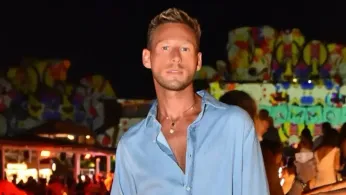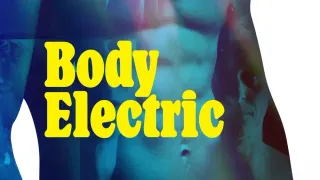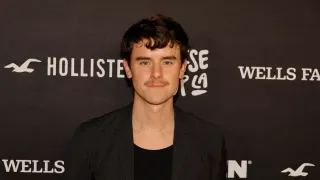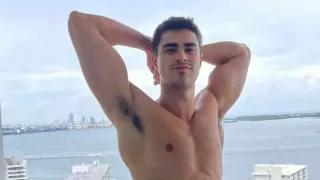
3 hours ago
Fraser Olender Champions Queer Visibility on Bravo’s ‘Below Deck’ in Candid Queerty Interview
READ TIME: 19 MIN.
Fraser Olender, a trailblazer as the first openly gay Chief Stew on Bravo’s hit series “Below Deck,” recently sat down with Queerty to reflect on his journey, the responsibilities of visibility, and the crucial role of authentic LGBTQ+ representation in mainstream media. The wide-ranging interview, published on August 24, 2025, offers a rare glimpse behind the scenes of a show known for its high-seas drama and, increasingly, for breaking new ground in queer inclusivity .
Olender, who joined “Below Deck” in its ninth season and quickly rose to Chief Stew, acknowledged the weight of being one of the few openly queer figures in Bravo’s reality lineup. “It’s a privilege, but also a responsibility,” he told Queerty. He described how his presence on the show offers validation to viewers who may be searching for people like themselves on screen, and how he feels compelled to “show up authentically” even under the scrutiny of reality TV .
He explained that his visibility is not just about being out, but about being complex and real: “Being queer on TV isn’t about being perfect—it’s about being yourself, with all your flaws, strengths, and quirks.” Olender emphasized that this kind of representation can help counter stereotypes and challenge the expectations that queer people must present a certain way to be accepted .
Addressing some of the misunderstandings that fans and viewers have about “Below Deck,” Olender was candid about the pressures of reality TV editing and the sometimes-inaccurate narratives that emerge. “People think they know you completely from what they see in an episode, but so much happens off-camera,” he said .
Olender pointed out that while the show’s format can amplify conflict and drama, it also creates opportunities to showcase genuine friendship, resilience, and camaraderie among the crew. Importantly, he highlighted that being queer on reality TV often means facing both support and criticism from viewers, and that social media commentary can sometimes distort the real dynamics at play on the yacht .
Olender’s interview comes at a time when conversations about LGBTQ+ representation on television are evolving. Reality TV, long criticized for its lack of diversity, is increasingly seen as a space where authentic queer stories can reach broad audiences. Olender told Queerty he is heartened by the response from LGBTQ+ viewers who feel seen by his presence on the show. “I hear from people all the time who say they finally see someone like themselves on TV, and that means the world to me,” he shared .
He also called for more opportunities for transgender people, nonbinary folks, and other underrepresented identities to be included in reality programming—not just as token characters, but as full, complex participants with agency and voice. This echoes a growing demand across the entertainment industry for more nuanced and varied queer representation, moving beyond simplistic or stereotypical portrayals .
“Below Deck,” now in its twelfth season, has become one of Bravo’s most popular and enduring reality franchises, and Olender’s role is a reflection of its willingness to evolve with the times . Yet, as Olender noted, mainstream reality TV still has a long way to go in terms of reflecting the full diversity of LGBTQ+ experiences. He praised the producers who listen to queer voices and encouraged networks to do more to protect cast members from harassment, both online and in the real world.
Olender’s advocacy comes amid broader conversations about the mental health impact of reality TV on queer participants. While platforms like Bravo can amplify positive visibility, they can also expose cast members to intense public scrutiny. Olender urged fans to remember the humanity of reality stars: “At the end of the day, we’re real people living real lives—not just characters for entertainment” .
As “Below Deck” continues to chart new waters, Olender remains hopeful that his visibility will open doors for more queer talent in front of and behind the camera. He called on producers and networks to prioritize authentic storytelling and to seek out diverse voices at every level of production. “We need more stories, more perspectives, more truth in our entertainment,” he concluded .
His remarks resonated across social media, where fans and fellow cast members expressed support and gratitude for his candor. The interview stands as a milestone in the ongoing push for queer representation—on deck, on screen, and beyond .






